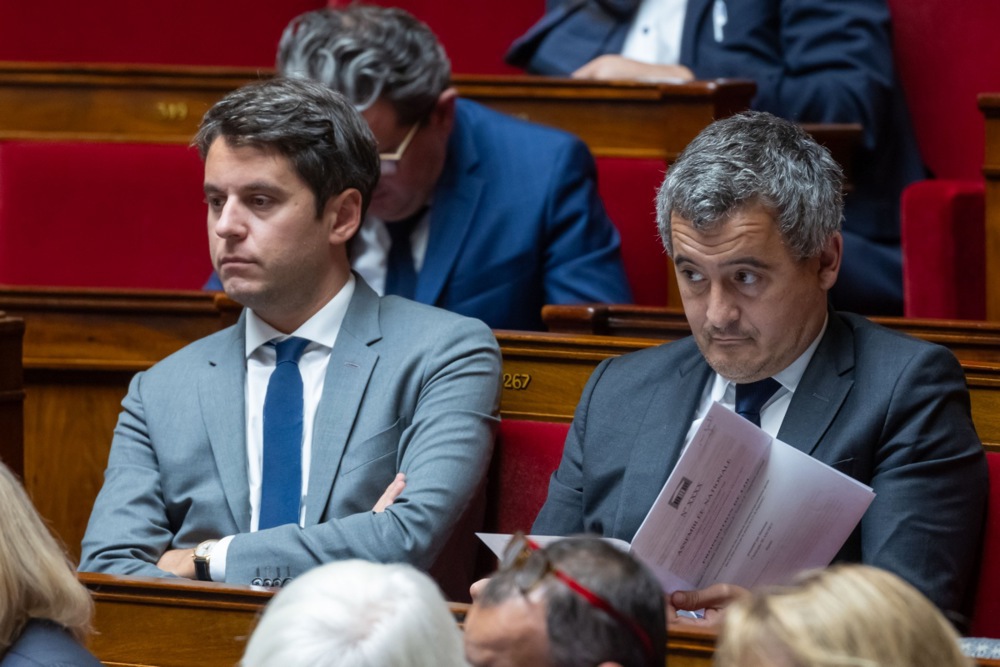Belgian political parties currently negotiating over forming a government faced a new challenge with protests and strike action in Brussels on January 13 over pension reforms.
Tens of thousands of demonstrators marched through Brussels protesting against the planned pension reforms, while large parts of the public transport system, 40 per cent of Belgium’s airline flights, and a sizeable number of schools shut down amid strike action.
Pensions in the country have faced reform, including a proposed increase in retirement age to 67 from 65, as ageing demographics make Belgium’s current system unaffordable.
Further complicating the task facing negotiators, the country must also get its budget back on track, giving its next government little room to manoeuvre.
Unexpectedly, Vooruit, a Flemish Socialist Party which is taking part in negotiations to form a coalition, was present at the protests against the next government’s plans.
Government talks continued on January 14, with their focus on fiscal matters, which the protests have made an increasingly fraught subject.
Lead negotiator Bart De Wever expressed a hope for the new government to form by the end of January.

But before negotiators have publicised any decisions about either the next budget or pensions, unions and social movements are voicing opposition to what they perceive as an attack on pensions and workers’ rights, amid broader discontent about working conditions.
They said proposed changes would lead to lower pensions, less favourable working conditions, and longer careers.
Instead of making people work longer, they argued the government should get extra money from “the rich”.
While organisers had originally only planned a small action January 13, the protests attracted unexpected support from members of the public.
Now the unions may feel emboldened and have threatened escalated protests if their demands were not met, including the prospect for a general strike.
The trade union ABVV/FGTB said it now planned further protests on the 13th of every month.
“The willingness to take action was very high. That is a tremendous signal to the negotiators for a federal government. We will continue to send them that signal until the future government meets our demands,” says ABVV director Habib El Ouakili.
He added “the people are worried. And angry.”
El Ouakili demanded unions and social partners would be included in talks by the parties negotiating a new government and budget, so the new arrangements could garner broad support.
A unusual moment occurred when firemen participating in the protest deviated from the trajectory and tried to block traffic. The firemen ended up in a scuffle with police, with four police officers suffering light injuries.
The Brussels fire department responded by calling the clashes regrettable and particularly painful. It noted less than two weeks ago, on New Year’s Eve, police officers and firefighters stood side by side during heavy riots, but now they were fighting among themselves.
“This behaviour does not reflect our values. We can express our demands calmly and with dignity. The police can count on our unwavering and unconditional support as a privileged partner,” said a spokesperson for the Brussels Fire Department.
Belgium has asked the European Commission for a new delay on its obligation to present a budget plan as coalition talks drag on. https://t.co/GcgARQC0Lx
— Brussels Signal (@brusselssignal) January 6, 2025
Belgium allocated about 11.5 per cent of its GDP to pensions in 2023. Over the years, these expenditures have steadily increased, rising by 2.2 percentage points between 2001 and 2019. In 2023, pensions and elderly care accounted for approximately €53.7 billion, or over one-sixth of total government spending.
Projections indicate that pension spending could reach 15.2 per cent of GDP by 2070, highlighting Belgium’s relatively high pension expenditure compared to other European countries, with further increases expected in the coming decades.





